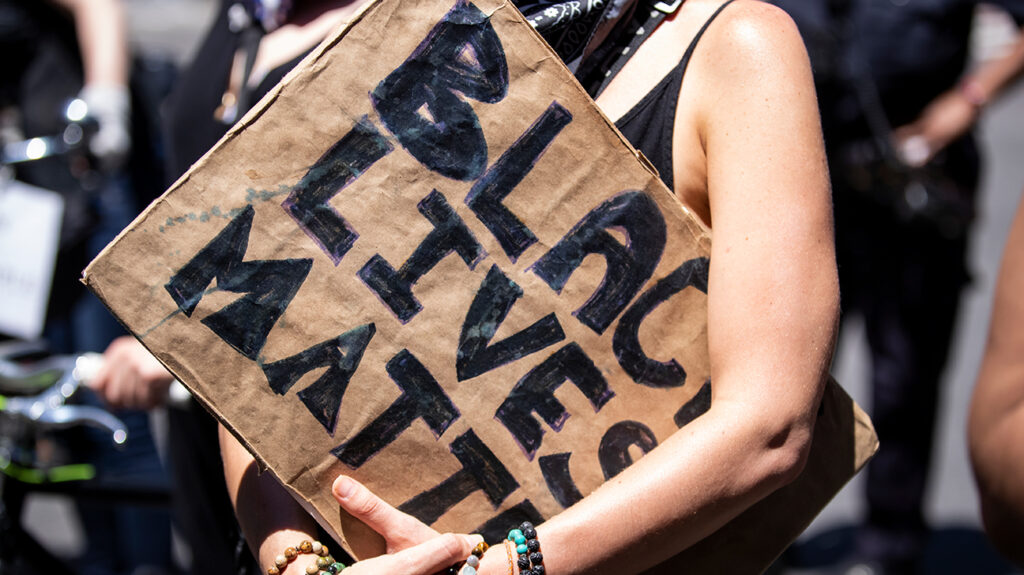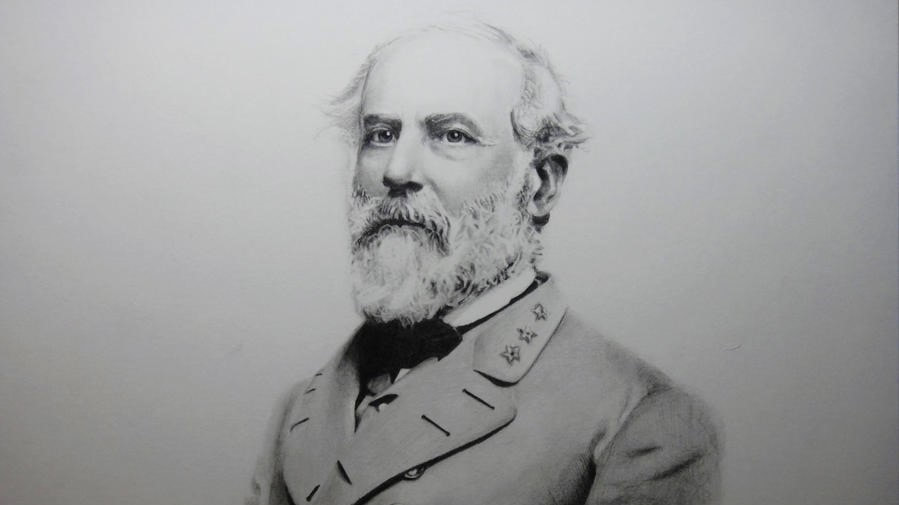|
What do Americans think about their country? Until the turbulent 1960s, most had a favorable opinion of America. But the upheaval of the ‘sixties decade’ permanently altered our society and how it was viewed. Electronic media essentially replaced print media, a new group of journalists replaced old-line reporters, national news outlets took precedence over local news outlets, and our society was portrayed as racist. This concern with racism has not only expanded since the 1960s but extreme measures are being proposed to end it, especially by indignant members of the Black community. In a Lancet book review, Dr. Rhea Boyd, a pediatrician and activist for communities of color, excoriates the racism of White Americans maintaining that the only way to stop racism is ‘to eliminate Whiteness all together.’ Resentful Black organizations are demanding the elimination of Whiteness although their opinions vary on how it can be done. Some claim that eliminating Whiteness is meant figuratively rather than literally. Others insist that Whiteness can be eliminated if “the identity and culture of White people” is destroyed. Eliminating Whiteness is a goal of irate Black organizations because they lump all Whites together as White supremacists and anti-Black bigots. Among the many justifications for eliminating Whiteness is the insinuation that Whites aren’t “sacrificing privileges “ or working hard enough to accomplish “true racial equality.” But what is the distinction between “racial equality” and “true racial equality.” Is this simply a linguistic devise to set the stage for additional racial remedies. We know that each time a racial concession is made, militant Blacks demand another concession. Luckily, all Blacks aren’t militant. Most realize they are better off coexisting with Whites and assimilating into the existing culture. Also, Blacks are only 13% percent of the population whereas Whites are over 60%. Consequently, a minority take-over of society is unrealistic. Unfortunately, our agenda-driven news media doesn’t hold our society in esteem. The average age of American adults is roughly 40 which means that most came of age after electronic media became the primary source of information. It was initially thought that this new medium would improve the quality of news reporting. A typical comment was that electronic news media “... has replaced print with better and fast flowing news and information.” It is undeniable that electronic news media has “replaced print” and its reporting is certainly “fast flowing.” Also, a significant segment of the public prefers hearing brief, spoken versions of events rather than reading a news article. But today’s electronic news reports are not necessarily “better”, in fact, what is called “news” is primarily scolding of Whites for their racism and media hype that kowtows to elites and militant Blacks. Some reporting goes beyond biased opinions and is actually “fake news.” In this time of impotent moral standards, fake news is widespread. Fake news is not just a ploy used by political candidates to allay derogatory coverage. The term has been around since at least the 1890s. News media reports can be deliberately false or unintentionally misleading. News media’s coverage of the critical race theory movement is more positive than negative. And it doesn’t refute CRT’s claim that America is a structurally racist society with Whites oppressing Blacks. White racism is a popular topic with news media as well as google sites and online videos. These, often zealous, characterizations of White racism are encouraging the elimination of Whiteness.
1 Comment
We shouldn't let the month of January slip by without paying our respects to one of finest men our country has produced; Robert E. Lee. January 19, is the 215th anniversary of the birthday of Robert E. Lee; a very special day, not only for Southerners but for all Americans who admire true heroes. Unlike media created heroes, Lee doesn't have a hint of scandal that has to be covered up. The facts of his life may be recounted without modification. Theodore Roosevelt characterized Lee this way: "the very greatest of all the great captains that the English-speaking peoples have brought forth." Lee is also venerated in Europe as evidenced by this tribute by Winston Churchill: "one of the noblest Americans who ever lived." In 1998, a Midwestern college decided to publish a book about the persons they considered to be six authentic heroes of our nation. They selected George Washington, Daniel Boone, Louisa May Alcott, George Washington Carver, Robert E. Lee, and Andrew Carnegie. Excellent choices; a group of outstanding people and a selection made without kowtowing to current political trends. Robert E. Lee's father was a Revolutionary War hero, a three-time governor of Virginia and a congressman in the U.S. House of Representatives. Two members of the Lee family risked their lives by signing the Declaration of Independence. Lee married Mary Custis, great-granddaughter of George Washington and she inherited Arlington House, Washington's antebellum estate in Virginia that eventually became home to Lee, Mary, and their seven children, before being confiscated by Lincoln. He turned it into a Union cemetary with an eye to making a return to its owners impossible. After graduating from West Point, Lee became a member of the U.S. Army and began a long and remarkable military career. He distinguished himself in the Mexican War earning three honorary field promotions. His accomplishments were many including Assistant to the Chief of the Engineer Corps and Superintendent of West Point. In later years he was appointed president of a college in Lexington, Virginia that was later renamed Washington and Lee University in honor of his outstanding years of service. Interestingly, when the Civil War started, Robert E. Lee was offered the command of the Union forces, but after his home state, Virginia, seceded, he resigned from the U.S. Army and joined with the Confederates. Many people wonder why Lee would turn down the command of the Union forces and support the Confederacy. But loyalty was one of Lee's bedrock traits and he couldn't wage war against Virginia and the South. Also, recent historians are presenting a more balanced view of the long festering and complex events leading to the Civil War. (An example being inequitable tariffs – the South paid 87% of the nation's total tariffs in 1860 alone.) The new research contained in these books puts a new light on Lee's decision to fight for the South. I suspect that another reason Lee decided to support the South was President Lincoln's refusal to meet with Southern representatives to try to reach a compromise to avoid war. Although members of Lincoln's own cabinet as well as newspapers in America and Europe encouraged the President to attempt a negotiated settlement, he remained adamant. Lincoln rejected all requests for discussions that might have led to a peaceful resolution. Robert E. Lee vigorously opposed slavery and as early as 1856 made this statement: "There are few, I believe, in this enlightened age, who will not acknowledge that slavery as an institution is a moral and political evil." Lee also knew that the use of slaves was coming to an end. Cyrus McCormick's 1831 invention of the mule-drawn mechanical reaper sounded the death knell for the use of slave labor. Before the Civil War began, 250,000 slaves had already been freed. Robert E. Lee did not own slaves, but many Union generals did. When his father-in-law died, Lee took over the management of the plantation his wife had inherited and immediately began freeing the slaves. By the time Lincoln issued the Emancipation Proclamation in 1863, every slave in Lee's charge had been freed. Notably, some Union generals didn't free their slaves until the ratification of the Fourteenth Amendment in 1868. During the Civil War, Union commanders pillaged the South, abusing civilians in unspeakable ways, destroying railroads and factories, and burning private homes, public buildings, schools and libraries. Union forces also slaughtered livestock and decimated crops, after they took what they wanted. Periodic reports detailing their carnage were sent to General Halleck in Washington who shared them with President Lincoln. In a typical report issued on September 17, 1863, Union General Sherman added this comment; "We will remove every obstacle-if need be, take every life, every acre of land, every particle of property, everything that to us seems proper." Halleck showed this report to Lincoln, who enjoyed it so much that he demanded that it be published. When Robert E. Lee invaded Pennsylvania, many Southerners hoped that he would give the Yankees a taste of their own medicine. But Lee was a man of integrity. Not only did he prohibit "wanton injury to private property," he also ordered his soldiers to pay for any supplies taken from civilians. Most histories have treated General Lee kindly, even those written shortly after the Civil War. This respect accorded to Lee infuriates those who want to tarnish his reputation, and they have even managed to force textbook writers to reword their references to Lee and, in many cases, delete any mention of him. Also, some cities have removed portraits and other Lee memorabilia as a result of pressure from politicos who haven't taken the time to learn the facts about this famous Southern gentleman. Portraits and plaques honoring Lee have been slashed and burned, and statues of the General have been spray-painted with obscenities. Never the less, current biographies continue to enhance Robert E. Lee's well-earned reputation. One journalist, after reviewing many of these new histories made this comment. "The South may have succumbed to overwhelming military force, but it triumphed in at least one sense. It produced perhaps the greatest symbol to come out of America's most disastrous conflict, someone who combined combat and moral excellence and who, once defeated, worked to heal the wounds of war. It is a record that deserves to be retold constantly." Years after the war, Lee still commanded respect in both the North and the South. On one occasion he was approached by a group of businessmen concerning a questionable commercial venture. After offering the General $50,000, they told him; "You will have to do nothing. All we want is the use of your name." Robert E. Lee's response was what we would have expected; "Sirs, my name is the heritage of my parents. It is all I have, and it is not for sale." If I had to pick one American to represent the best values of our nation, I would choose Robert E. Lee. He stands taller than anyone else. We must continue to honor him every January on the anniversary of his birth because; "Men of such magnitude are rare in history. They come but once in a century." This piece was previously published on LewRockwell.com.
Most White Americans are relieved and thankful that the year 2021 is ending. It was one of the worst years for White Americans. Whites were made the scapegoat for racism in America, the social villains of 2021. The White racism ploy was used to justify eliminating White heritage: monuments and memorials were demolished; traditions and customs denigrated, and moral values scrapped. During 2021, we rarely heard “Proud to be an American.” but we often heard “America is a racist country.” We also heard a lot about diversity, the current panacea for society’s ills. The term ‘diversity’ has diverse meanings, ranging from preferential treatment of minorities to the devaluing of Whites. America’s White European heritage remained largely intact as the immigration of other races altered our demographics. White and non-White groups coexisted and often commingled without altering our heritage. But, over time, anti-White agendas emerged, putting our heritage at risk. Our heritage was seriously threatened in that era known as the ‘Sixties’, that restless period from roughly the mid-1960s to the early 1980s. During that chaotic era, the counterculture implemented various changes to our society without considering their long-range consequences. Essentially, the Sixties were a symbolic cut-off point between a pragmatic way of life and idealistic social activism. This era was characterized by efforts to eliminate disparities between the races and minimize acts of racism. The electronic media that emerged around that time strongly encouraged the anti-racism fervor. But the repeated racism complaints began to sound scripted, giving rise to the sardonic phrase ‘race grievance industry.’ It was assumed that sub-groups, including Blacks, would assimilate into the existing White culture . And for most of our history that has happened. But during the last few decades, a resentful contingent of Blacks has emerged, clinging to Black culture and refusing to assimilate. Some members of this aggrieved assemblage occupy pivotal media positions from which they castigate White America. One of the most virulent of these embittered media journalists is Joy Reid, who hosts a cable program on MSNBC. Reid was one of the first Black woman anchors of a cable news show. The format of her show is political conversations with news makers. These conversations are supposed to cover a variety of issues but Reid’s favorite topic is White racism . Attacks on Whiteness have so characterized Joy Reid that she has been called the ‘race lady’ and even a ‘racist sociopath.’ Joy Reid is the epitome of race-baiting Black journalists who hyperbolize the adverse effects of White racism. But she has also expressed abusive opinions on other issues, which offended minoritized groups. After previously denying these opinions, Reid reluctantly apologized for them. Not surprisingly, it is rumored that MSNBC is considering canceling the Joy Reid show. White racism dominated both news media and social activism during 2021. Also, critical race theory and similar ideologies were essentially engaged in a culture war against Whites. They depicted racism solely as a White phenomenon. Some of their assertions were: White racism permeates our entire society; White Americans are socialized to be racists, Whites are unconsciously biased without knowing it, White supremacy is indigenous to our way of life, and Whites oppress Blacks and other minorities. During 2021, eliminating White supremacy and White privilege evolved into abolishing Whiteness . The elimination of Whiteness has become the cause du jour of many non-White groups. And their efforts are intensifying. Even White elites are part of the anti-White crusade. Many naively believe that without Whites, a more tolerant and bias-free society can be created. But eliminating the oldest and largest race, the White race, will seriously impair our society and our heritage. So we should hope a significant backlash against the purging of Whiteness will develop in 2022. |
AuthorGail Jarvis is a Georgia-based free-lance writer. He attended the University of Alabama and has a degree from Birmingham Southern College. His writing is influenced by years of witnessing how versions of news and history were distorted for political reasons. Mr. Jarvis is a member of the Society of Independent Southern Historians and his articles have appeared on various websites, magazines, and publications for several organizations. He lives in Coastal Georgia. Archives
June 2023
|



